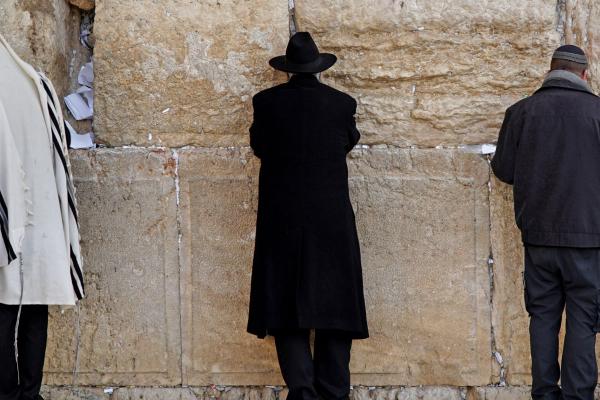Have you ever felt that way?
If we’re not in the habit of observing a weekly Sabbath day of rest, that’s how we might perceive the fourth commandment, too. We may see every unfinished project and people out there doing things we could enjoy if not for this weekly word from above, “It’s time for rest.” It may be hard to see the Sabbath, or Shabbat in Hebrew, for what it really is: a gift.
Remember the Sabbath day by keeping it holy. Six days you shall labor and do all your work, but the seventh day is a Sabbath day to the Lord your God. On it you shall not do any work... — Exodus 20:8–10
Children can go, go, go until long after they should be napping or in bed for the night. Eventually, they crash right where they are, no matter how inconvenient the time or place. It’s funny that, as adults, we can do the same thing without recognizing it. Our go-go-go just has a grown-up look to it.
Today’s culture lends itself to a non-stop pace. The internet has put a world’s worth of information on our desks, and our smartphones have put it right in our pockets. It’s always within reach, day and night, and we are always available. Work and rest can get muddled into one big blur of accessibility. We may enjoy recreational activities and time with family and friends, but when we return after the weekend, we often feel like we haven’t truly rested.
Many of us don’t even realize how tired we are; we just keep going. We go for weeks and months, even years, without getting the mind, soul and body rest we need. So, our crashes come in grown-up sizes too. Whereas children may get sick, cranky and suddenly fall asleep mid-sentence, adults may get seriously ill, have an emotional breakdown or burn completely out. At that point, incapacitation forces us to rest. Recovery can take months, not just hours — no matter how inconvenient.
Thankfully, God provided a remedy for our non-stop busyness — Shabbat, a weekly rest. Those who practice it know what a gift it is. The word Sabbath means “ceasing,” and on the seventh day of the week, we cease working. What does “work” mean? That might vary, so it’s important to listen to the Lord to know how He wants you to find your rest.
If you’d like to learn more about Shabbat and how to start incorporating it into your life, we have a brand-new resource for you. Shabbat: A Sacred Rhythm of Rest takes you through the biblical origins of the Sabbath, how the Jewish sages defined work and Jewish observance today. You’ll learn about setting the Shabbat table, the candle-lighting ceremony and blessings. You’ll also discover Shabbat’s relevancy for Gentile Believers, see Jesus in its Jewish traditions and find tips for establishing your own Shabbat observance. It also includes a Challah bread recipe and sample blessings you can pray over your Shabbat guests.
The word has come down; you can rest. You should rest. You’re invited to rest. Come explore the gift of Shabbat with us.











